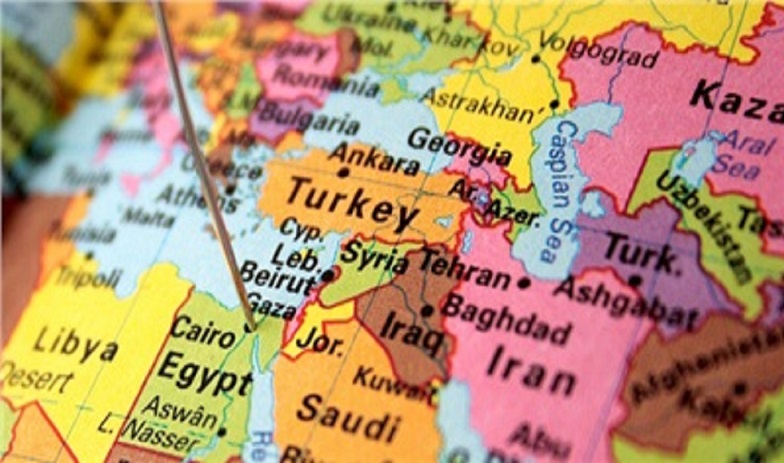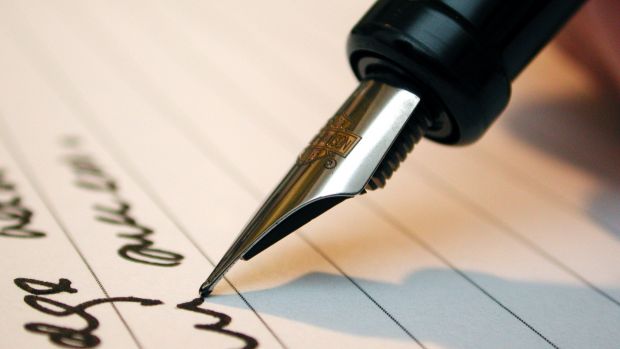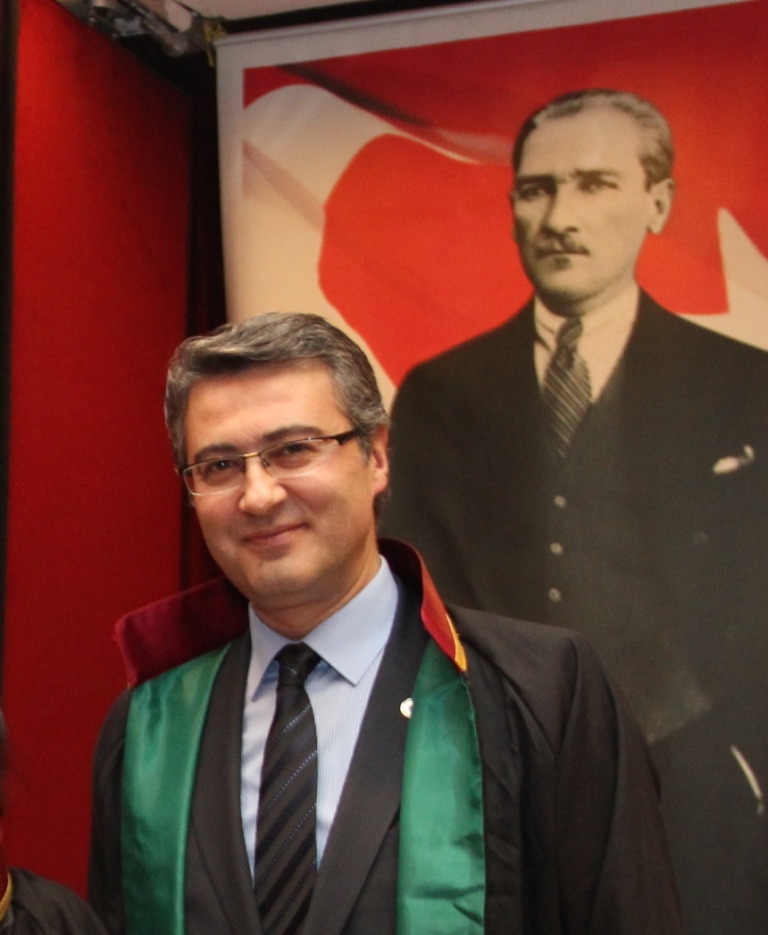Most foreign or even Turkish analysts present President Recep Tayyib Erdoğan’s Turkey as isolated from the international community and friendless (for instance, e.g. Alice Tidey, ‘Turkey is growing more assertive on the world stage but also more isolated, say experts’, Euronews, 16 October 2020; Yaşar Yakış, ‘Isolated Turkey aware that pressure is growing’, Arab News, 6 September 2020).
But is this the case? In the September EU Summit, both Greece and Cyprus wanted to discuss potential European sanctions on Turkey, on the grounds of its aggressive stance against these states. In practice, many European member states opposed it. First and foremost Merkel’s Germany was not interested in such sanctions as Germany has substantial investment in Turkey, as well as substantial Turkish population (voters) in Germany. Italy and Spain which loaned money to Turkish banks also opposed any sanctions; a collapse of Turkey’s economy would hurt their banks. They also sale arms to Turkey. Malta and other countries also opposed it, not demonstrating European solidarity but each country relying on its real or perceived national interest. Nothing surprising. At the same time, these nations wanted to impose sanctions on Belarus, which has an authoritarian leader. Sounds familiar? What other countries have authoritarian leaders yet they do not seem to be deserving sanctions? European solidarity is only honored in its breach.
Erdoğan Turkey’s is not as isolated as many analysts would have us believe. The Greek press often produces articles to this effect (for instance Kathimerini, ‘Turkey on course to diplomatic isolation’, 20 October 20). This is wishful thinking. The reality is more complex. In the 1950s, two main blocks, the West and the East regarded themselves as adversaries and in between a large block of non-aligned states played the superpowers against each other for maximum gain. This is no longer the case, and also China has joined the unofficial club of superpowers and other states dream the same (i.e. Erdoğan’s Turkey). International relations have become much more multi-faceted and multi-polar.
Alliances/partnerships
On the surface, Russia and Turkey, or at least Putin and Erdoğan, seem to have a working relationship, though this may not be described as cordial. Considering that they are both adversaries in three theatres of war (Libya, Syria and the now resolved conflict of Nagorno-Karabakh), can they be regarded as allies? Conventional tools of analysis would suggest otherwise, but in practice both countries co-operate to avoid a major conflict between the two. Russian analyst Vladimit Suchov call these two leaders/countries partners, rather than allies. They find some common ground on which they build for mutual benefit and avoid at all costs a major conflict. Both partners have to tolerate certain “indiscretions” (e.g., the shutdown of the Russian fighter jet in 2015, the assassination of the Russian ambassador in Turkey 2016, the extermination of jihadists in Syria aligned with Turkey, in October 2020).
Iran can be included in this category (partner but not ally). Iran supports Assad, while Turkey supports Sunni jihadists, masquerading as the Free Syrian Army. The two are also adversaries in the Gaza Strip. Iran has been supporting Hamas but now Turkey has emerged as a strong supporter, reducing Iran’s influence. Erdoğan is also interested in getting involved in Lebanon and Yemen supporting Sunnis, which would be in direct conflict with Iran, supporters of Hezbollah in Lebanon and Zaidis (Fiver Shiites) in Yemen. The involvement of Sunni jihadist in the Nagorno-Karabakh conflict and a sizeable Azeri minority in Iran may potentially allow Erdoğan to create problems for Iran as well. For now, both Erdoğan and the Ayatollahs find it convenient to ignore these issues.
The Ukraine has also emerged as an ally for Erdoğan, after the signing of a military co-operation agreement. In the first instance, Erdoğan’s move is puzzling because this alliance is bound to irritate Putin. However lightly Erdoğan treads when it comes to Russia, he is still intent in pursuing an expansionist strategy at the expense of Russia. The Ukraine needs friends. Western Europe could not stop the annexation of Crimea and the loss of control to Russia of substantial Ukrainian territory, Erdoğan has extended a helping hand. Nevertheless, it must be obvious to the Ukrainians even in their desperation, that Erdoğan does not help anyone unless there is a substantial gain for himself. Not only is Erdoğan unlikely to help the Ukraine to reclaim Crimea, he is more likely to agitate through the Turkic Tatars for a future annexation to his imaginary Empire.
Nemeses/foes
Both Greece and Cyprus are countries that have unresolved issues with Turkey. Initially Erdoğan (Erdoğan I) wanted to resolve these but Erdoğan, at this stage of his career, as Erdoğan IV, does his best to augment the differences (for an explanation of the stages in Erdoğan’s political life see Racho Donef, ‘The Fourth Republic, Erdoğan IV, Neo-Ottomanism and Conversion of the Hagia Sophia Museum into a Mosque’, Platform for Peace and Justice, 14 July 2020). However, it is not only Greece and Cyprus that have on-going issues. Armenia, in the recent conflict n Nagorno-Karabakh has been a target of the Islamo-nationalist press, most of which is controlled by Erdoğan. Syria, under occupation from Turkey and its jihadist allies/mercenaries, can be added to the list, as the “heterodox” Alawis are disliked by Erdoğan. Even Sunni Muslim nations such Saudi Arabia, which is keen to maintain its special status in the Muslim world, Egypt which is antagonized by Turkey through its support of the Muslim Brotherhood, and the United Arab Emirates which has to contend with a Turkish base in near-by Qatar, increase the extent of the list.
Lately, France, through President Emmanuel Macron, started expressing its dissatisfaction with Turkey’s meddling in the Middle East, Africa and East Mediterranean and emerged as a formidable adversary. Austria can be added to this list.
Friends/Allies
Qatar’s Emir is Erdoğan best friend. Qatar keeps pouring money into Turkey to keep propping up the Turkish economy. In the process, the Qataris are buying valuable property in Turkey and they just purchased a ten per cent stake at Istanbul’s stock exchange (Borsa Istanbul). Somalia, which also hosts a Turkish base, is also a fiend/ally. However, Somalia is in need of financial support, which Erdoğan is willing to provide, to the point the Turkish state currency reserves allow it.
Pakistan is also a strong supporter of Erdoğan. Imran Khan, the Christophobic Prime Minister of Pakistan was one of the first to support Erdoğan’s belligerent discourse towards France. He sent soldiers to help the Turkish/Azeri effort to take over Nagorno-Karabakh. Pakistan also declared that it would recognize the enclave of Northern Cyprus as an independent state.
Though other countries such as the US and Germany are unlikely to emulate Imran Khan’s gestures, they do afford much support to Erdoğan. Trump has refused to take action under the US law CAATSA against Turkey for purchasing and using the Russian S-400 rockets, and tried to slow down the suit against the Turkish state-owned Halkbank, for violating the US embargo on Iran. Much of Erdoğan’s family is implicated in this scandal. So far Erdoğan sacrificed his son-in-law to extricate himself from the consequences of this impending trial. Though President-elect Biden, is unlikely to stop this process, the way Trump did, it is unlikely that the US policy vis-à-vis Turkey to change. The US and many of its western allies, still labor under the illusion that Erdoğan’s Turkey will return to pre-Erdoğan norms.
Merkel’s Germany is also a good friend of Erdoğan. Merkel continuously and vehemently opposes any sanctions against Turkey for its hostile activities in the Aegean and Mediterranean, foremost calculating German investments in Turkey. Merkel is unlikely to change her stance and in the upcoming December EU Summit will veto any sanctions against Turkey. To facilitate her role, Erdoğan will stop his belligerent activities for a few days and make some conciliatory remarks about dialogue which no informed person should find it credible. Turkey with Erdoğan IV as the leader is unlikely to return to the European path, which it pursued almost since the establishment of the Republic.
Vassal sates
The recent Nagorno-Karabakh conflict indicates that İlhan Aliyev’s Azerbaijan is clearly in this category. There is no doubt that Erdoğan, looking to demonstrate a battle field victory (which eluded him in Libya and Syria) to his actual and potential voters, convinced Aliyev to attack the enclave. Turkish officers and Turkey sponsored Syrian jihadists helped him in this endeavor. These Sunni jihadists may become a problem for Shiite and more secular oriented Azerbaijan in the future. The “Two states one people” (İki devlet bir millet) mantra often repeated in Turkey to point out the close relationship between the two countries, is in danger of transforming to “Two states one leader” (İki devlet bir lider). One can guess who this leader is likely to be.
The Northern Cyprus statelet, only recognized by Turkey is also a vassal state, especially since the election of Ersin Tatar at the expense of more liberal Mustafa Akıncı as the leader of the enclave.
Ambiguous
In this category, we can include China which is not interested in forming true friendship alliance but it seeks to make sate dependent on her. In the meantime, Erdoğan, who position himself as the champion of Muslim human rights everywhere, is conspicuously silent on the fate of the Turkic Uygur people. Furthermore, the pan-Turanian dreams that the Erdoğan-Bahçeli team is advancing must make China very cautious. At this stage, Chinese investment is needed in Turkey and this will govern the relationship between the two.
Conclusion
The matrix of international relationships is very entangled and Erdoğan proved to be a master in manipulating them for his benefit (not necessarily Turkish people’s benefit in the long run). One thing is for certain that Erdoğan’s Turkey is not isolated and can use a number of extrapolations to advance the current AKP/MHP agenda. However, trying to play simultaneously in many fields, exploiting local and international tensions and weaknesses, eventually may cause geopolitical consequences which could prove detrimental for Turkey.
[authorbox authorid=”40″ ]
- Erdoğan: President, Sultan, Caliph or Başbuğ? - 08/01/2021
- [ Turkey ] Alliances, partnerships, nemeses, vassal states - 30/11/2020
- Is a Greco-Turkish war inevitable? - 20/09/2020



